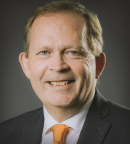As the cancer community marks Breast Cancer Awareness Month this October, the Union for International Cancer Control (UICC) is starting a new 5-year program aimed at accelerating progress in breast cancer control.

Princess Dina Mired
“While the incidence of breast cancer is generally higher in more developed regions, the number of cases is rising in low- and middle-income countries, and they are often diagnosed later, leading to more serious outcomes,” said Her Royal Highness Princess Dina Mired of Jordan, President of UICC. “UICC’s Breast Cancer Programme is part of UICC’s broader commitment to women’s cancers and will strengthen the capacity of key breast cancer actors in order to reverse these trends.”
Long-Term Goals
The Breast Cancer Programme aims to achieve six main outcomes by 2025:
1. Accelerate the development of breast cancer leaders.
2. Strengthen organizational capacities of breast cancer organizations, including patient groups.
3. Support the development of the health workforce in breast cancer.
4. Support national action on breast cancer in responding to key areas and needs in breast cancer control.
5. Strengthen networks and collaborations in breast cancer at national, regional, and global levels.
6. Unite the voice of the breast cancer community, including patient groups, to advocate for more effective breast cancer control.
“Key to reversing rising mortality due to breast cancer is our ability to work together to leverage and expand the will and resources that currently exist, supporting the

Cary Adams, BSc (Hons), MBA
creation of a common agenda to maximize impact,” said Cary Adams, BSc (Hons), MBA, Chief Executive Officer of UICC. “In practical terms, with the necessary funding, our ambition for the UICC’s Breast Cancer Programme is to support 50,000 patients with breast cancer; mentor 150 breast cancer organizations; train 170 organizations and 5,000 health professions in advocacy, communications, fundraising, monitoring, and evaluation; and mobilize 1,500 cancer organizations.”

